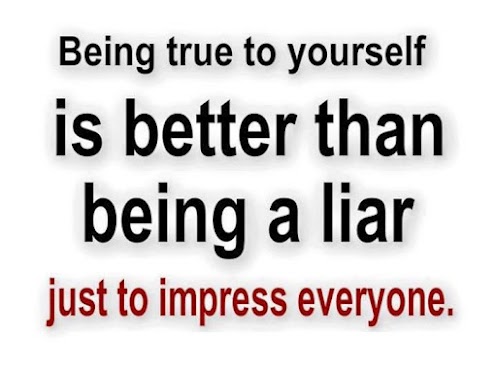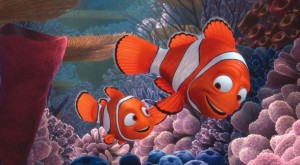Duncan and I took my father to the last place on Earth I wanted to be Saturday afternoon: The family business in Saugus.
Some of you know it as the blue, white and gold striped building across from Kappy’s Liquor store on Route 1. I’ve been trying to keep him out of there since he was released from rehab. Given his slow recovery from two strokes, I didn’t want him climbing stairs.
I also didn’t want him doing work things that would raise his blood pressure. You could say I’ve been trying to insist he do something I would never do: Sit at home and stay out of trouble.
Mood music:
But by the end of the afternoon, it occurred to me that maybe — just maybe — some of us well-meaning family members need to loosen our grip.
The first clue was that he insisted on leaving his wheelchair in the trunk all afternoon. He got around using his walker. As often as he could, he lifted the walker off the ground and took some steps without the help.
Of course there’s the constant danger of an accident. Maybe he’ll slip and fall. Maybe his blood pressure will spike to dangerous levels and set him back further. But when he was contained like he was in the hospital and rehab, you could see the depression setting in.
Saturday he was in the best mood I’ve seen him in since the first stroke in May, and I think it’s because I did loosen the grip and let him do what he wanted: Go through 37 years of paperwork in his office. He knows he’s going to be home a lot more than he would like. He’s going through the drawers of his desk to find things to save and clean out the stuff that has no more value: Phone bills from the 1990s, for example.

We got in the office and I plopped myself down in a chair, staring intently at my Android phone. That lasted about 30 seconds.
“Billy, see those two book cases next to you?” he asked. “I need you to empty them and put everything over here…”
This was familiar ground. As a kid I worked in his warehouse. I pretended to work, anyway. Those who remember the younger me will recall a long-haired slacker with moods that would rise and fall like a hammer in the hands of a coke addict.
I always felt like I was in a cage, chafing against my father’s constant orders. I rebelled hard. I’d hide behind boxes in the back of the building, chain smoking when I was supposed to be filling out inventory sheets.
In hindsight, I had the same problem you see in a lot of idealistic college kids: I thought this work was beneath me. I was too smart for this shit. I was destined for bigger things. Or so I thought. Back then I often confused being educated with being smart.
My father’s lessons about hard work and the value of a dollar eventually caught on. I just had to have two kids and a mortgage before I got it.
This time, I put the phone down, got up and started the clean out. I found a couple empty canisters used to store blueprints and gave them to Duncan, who happily grabbed scissors and markers and set about building himself a couple missile launchers.
He was also in good spirits because we found a package of “carpet skates” my father bought for the kids a few years ago but shelved because he figured I wouldn’t be crazy about the boys sliding across the living room and smashing into furniture.
I found this picture of me, Michael and Wendi visiting Santa Clause sometime in the early 1970s. I’m holding the doll and sulking over something, perhaps the fact that my siblings got to sit on Santa’s lap and I didn’t.

I also found boxes of trinkets my father had collected from the Republican party over the years. It turns out that he got a lot of stuff in the mail for his donations: Gavels with Newt Gingrich’s signature, a medal with Ronald Reagan’s likeness carved into the center, autographed pictures of George W. Bush thanking “Mr. Brenner” for his support of the party.
Dad let me walk away with one of the Gingrich gavels. I never liked the former House speaker, but there’s something cool about holding a gavel in your hand. It now sits on my desk at the office, where I’ll probably bang it on the mouse pad during moments of fidgeting, to the annoyance of co-workers.
There had to be nearly 20 years worth of these trinkets. Some people, like me, would have proudly displayed them around the office. Not my father, though. Appearances don’t mean much to him. The trinkets sat unopened in white boxes on the shelves, buried under blueprints and billing forms.
As I was playing with the trinkets, Dad was finding a lot of things from the past, some of it painful.
There were outtakes from my late brother‘s yearbook photo shoot.
And he found my brother’s death certificate.
I’m sure he’s looked at it a hundred times or more, but this was the first time I saw it. Death certificates are cold documents with a thudding finality to them.
They say nothing about the life. Just the cause and location of death, age, occupation (student), parents, place of death (Lynn Hospital, which is now the site of a Stop & Shop) etc.

Last year, I spent a few afternoons in the warehouse across the street, digging through a bunch of rotting old boxes in search of old notebooks from my song lyric-writing days. I never found them. It turns out, though, that I was like the Nazis in “Raiders of the Lost Ark” — digging in the wrong place. All the interesting stuff was sitting in my father’s office all along, collecting dust.
It could have been a morbid trip back in time, my father closing out the defining chapters of his life as he prepared to spend the rest of his days in solitary confinement.
But it wasn’t for one simple reason: That whole afternoon my father stubbornly moved around without a wheelchair, determined to do whatever the fuck he pleased, no matter what well-meaning loved ones were telling him.
He was preparing for the next chapter, and like many of his actions over the years, it was a teachable moment for me.






